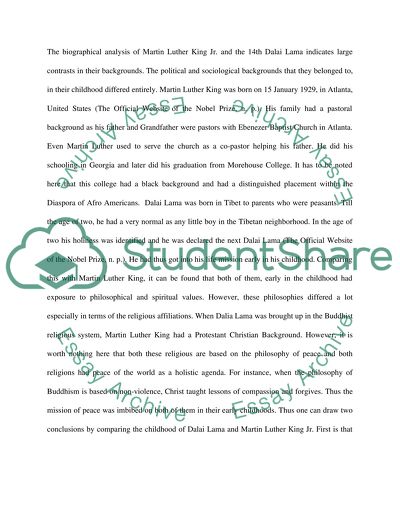Cite this document
(“Nonel Peace prize ( Martin Luther King and The Dalai Lama) Research Paper”, n.d.)
Retrieved from https://studentshare.org/english/1473278-nonel-peace-prize-martin-luther-king-and-the-dalai
Retrieved from https://studentshare.org/english/1473278-nonel-peace-prize-martin-luther-king-and-the-dalai
(Nonel Peace Prize ( Martin Luther King and The Dalai Lama) Research Paper)
https://studentshare.org/english/1473278-nonel-peace-prize-martin-luther-king-and-the-dalai.
https://studentshare.org/english/1473278-nonel-peace-prize-martin-luther-king-and-the-dalai.
“Nonel Peace Prize ( Martin Luther King and The Dalai Lama) Research Paper”, n.d. https://studentshare.org/english/1473278-nonel-peace-prize-martin-luther-king-and-the-dalai.


